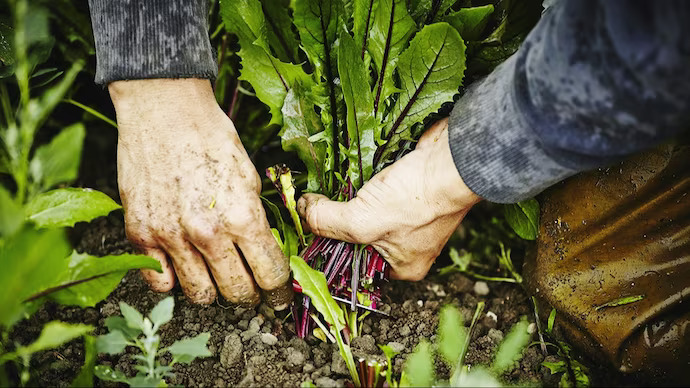As global warming and rising cancer incidence affect more and more people in Kerala, the state is trying to make a difference by giving a boost to organic farming. The government’s Organic Farming Mission, announced recently, aims to promote sustainable farming practices across 5,000 hectares over the next five years, the annual target being a thousand hectares.
Clearly, the follies of pesticide-based farming to improve yield as well as the dire need to grow safe food are being realised. “Kerala’s Organic Farming Mission is an ambitious plan to turn the entire state into an organic farming hub. The mission will focus on introducing organic farming practices, creating a support system for organic farmers, and exploring the market for organic products. We also plan to introduce organic farming among students so as to reach out to their families,” state agriculture minister P. Prasad told.
Kerala currently has around 300 certified organic farmers who are largely targeting the export market. The state also has accredited organic certifying agencies catering to the needs of the farmers. Organic varieties of Jeerakasala and Gandhakasala paddy, grown in Wayanad, are in great demand.
Food produced through unsafe farming is feared to be a big cause of cancer, a disease that is increasingly weighing down Kerala. The state registers an estimated 35,000 cancer cases every year. “It’s an eye opener. The health situation demands a new food culture in Kerala. We need to adopt eco-living to avert health tragedies. Everyone needs to think how much organic food they are consuming,” says Dr A. Sajeed, additional director (administration) at the Thiruvananthapuram-based Regional Cancer Centre, where more and more cancer patients have been streaming in with each passing year.
Kerala has learnt some hard lessons from pursuing pesticide-ridden farming for long. The Organic Farming Mission promises to be a big initiative to undo the damage. Endosulfan victims in Kerala’s northern district of Kasaragod suffered for more than 40 years, highlighting how pesticides adversely affected their lives. Being a consumer state, Kerala depends on vegetables cultivated in neighbouring states like Tamil Nadu and Karnataka, where use of pesticides in farms is common. “High levels of pesticide are common in vegetables consumed by the people of Kerala. The continuous use of such vegetables may pose health problems,” says Tomy Vadakkenchery, an organic farmer from Wayanad. “Organic vegetables are the only solution to save lives.”






